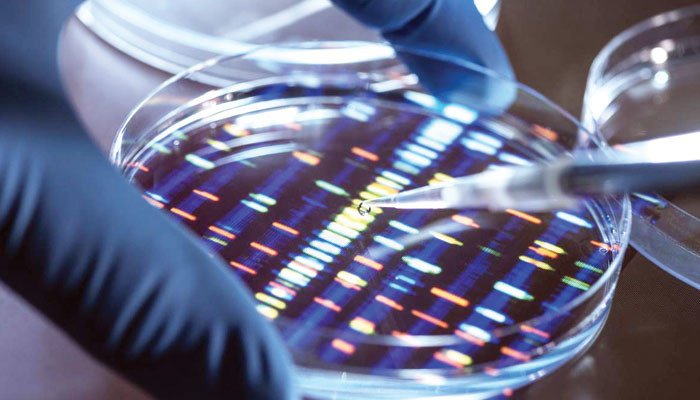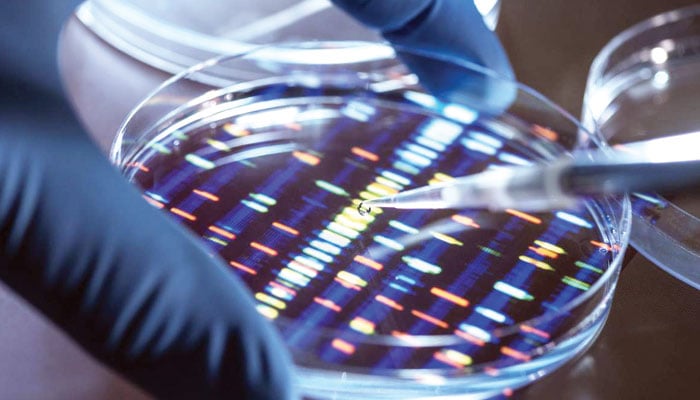
In this modern era, scientists have genetically engineered talking mice and monkeys, as well as identifying mutation and aging genes in wild animals and introducing methods to engineer other things. Some of them are mentioned below.
Talking Rats and Monkeys
What makes humans unique? If it is due to our genetics, what part of our genome contributes to this, and if we make this genetic change in animals, will they be able to communicate within a day like we do? Important information in this regard was revealed by a British scientist in 1990, which was about a British family. Almost half of the family members suffered from severe speech and language problems, due to which they were unable to communicate properly. Through the efforts of scientists at Oxford, it was found that the cause of this defect is a broken gene.
Now this gene is called the language gene. The team working at the Max Planck Institute for Evolutionary Anthropology in Germany has recently raised a mouse, whose gene has the ability to shape. The result is surprising. This rat has the ability to produce different sounds altogether. In addition, his mind has the capacity to learn much more than he can understand.
It is thought that the gene creates certain necessary abilities within the brain and establishes the connection between the lips, tongue, lungs and throat that is necessary for the process of speaking. If it succeeds in enhancing the brain functions that are necessary for the formation of thoughts and that are later converted into speech, we may in the future have talking cats, dogs, rats and monkeys.
Genetically improving wild animals
Some people are more aggressive than others. This is because such tendencies lead them towards criminal activities. The same is the case with animals that some animals cannot be domesticated due to their internal characteristics. These animals include wolves, foxes, langurs, zebras, cheetahs and other animals. In 1970, an interesting experiment was conducted at the Institute of Cytology and Genetics in Russia. Two groups of mice were separated from one generation to the next with respect to aggressive and adaptive traits. After 30 years of this repeated choice, the two groups showed strikingly different attitudes.
The reformed group showed the greatest ability to be reformed, while those nurtured with an aggressive temperament proved to be the most wild. This suggests that certain genes are responsible. Another similar experiment was carried out on eight generations of white foxes and a new type of white fox was obtained which had lost its aggressive tendencies. Genetics has the solution to reducing the propensity for violent crime in humans, this can be done by identifying the genes that cause these propensities and then combating them through gene therapy or genetic therapy. Is.
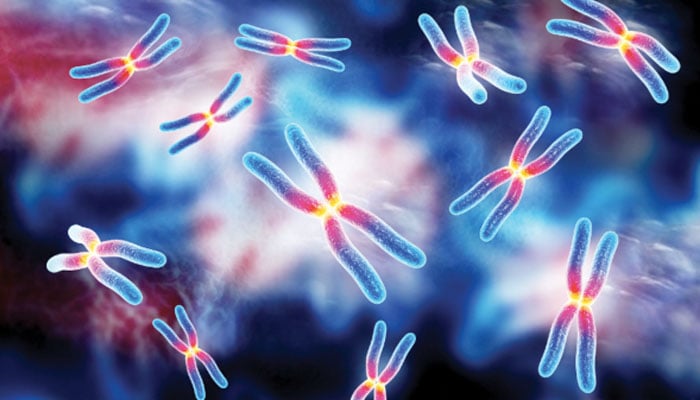
Importance of genetics in agriculture
Due to increase in temperature, there is a risk of famine and drought in many countries of the world including Pakistan. Advances in the field of genetics have created a ray of hope. With the help of genetically engineered crops, not only grain production is increased, but more nutritious crops and disease-resistant crops are being obtained. Recent developments in this regard include insect resistant guar, fungus resistant banana, virus resistant sweet potato, high grain millet crop and drought tolerant crops. Apart from this, numerous types of crops have been developed through genetic engineering. But if its safety requirements are met, there is nothing to fear in the growth of these crops, rather, with their help, we will be able to better deal with the coming food crisis.
Crime genes for violent criminals
David Goldman and his colleagues working at the National Institute in Maryland, USA, have discovered a gene that causes criminal behavior in criminals. This gene was identified after studying the genetic profile of criminals. This gene blocks the production of serotonin, which affects the part of the brain that deters criminals by making them aware of the consequences of crime. The presence of this gene indicates the presence of violence, but this does not mean that all individuals carrying the gene will exhibit the same type of behavior.
Cloning of primitive animals
Cloning technology is advancing at a very fast pace and new discoveries are being made every day, with the help of this technology, the dream of cloning ancient extinct animals is becoming a reality. This fact came to light when the Center for Developmental Zoology in Qubay, Japan successfully recreated a mouse using tissues from a mouse that had been frozen sixteen years ago. The same technique is being adopted for the cloning of mammoths. The mammoth species died out four and a half thousand years ago, but their remains are buried in the snow of Siberia. This Japanese group has succeeded in producing mammoth egg nuclei.
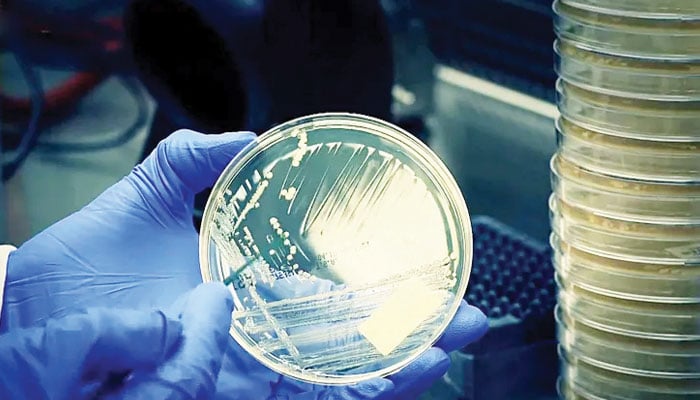
Identification of the aging gene
Researchers at King’s College London have identified certain genes that cause aging in humans. They discovered that the functions of these genes can be turned on and off by certain external factors, such as diet and environment, and that they hold the key to a long, healthy life. It is followed by an assessment of genetic similarities and differences. According to research, four key genes that influence healthy aging and longevity are also linked to cholesterol and lung function. This research has provided important information on aging and has opened many new doors for anti-aging treatments.
Genome Classification of the “Black Death”.
Between 1330 and 1347, a deadly plague killed a third of the world’s population, hence the name Black Death. The disease emerged from northern parts of Asia in the 1330s and reached Europe in the 4091s, killing an estimated 57 million people worldwide.
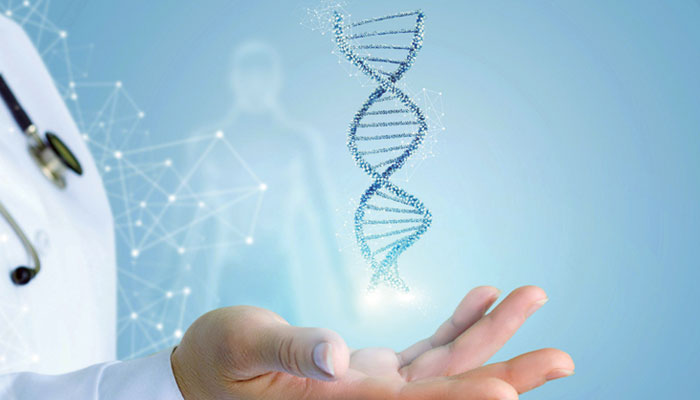
The science of weight loss
A large number of people living on our planet are obese. According to the World Health Organization, about 2 billion (2 billion) people in the world are overweight or obese, which is a third of the world’s population. Several causes have been identified, including genetics. Accordingly, an obesity gene called FTO causes obesity.
This gene is found in 61% of the European population. Another cause of obesity is lack of sleep. It may surprise you that you burn more calories while awake so you should lose weight due to lack of sleep, but the opposite is true. A research study conducted on 78,000 Americans by the Centers for Disease Control and Prevention in the United States found that those who slept less than 6 hours were 33 percent more likely to be obese.
Previous studies have shown that certain appetite-regulating hormones (ghrelin and leptin) are affected by sleep deprivation, leading to increased appetite and cravings for salty and sweet foods in humans. Desire is born. Some environmental factors have also been identified in this regard. One of them (Bisphenol A) is BPA, which is found in plastic bags, toys, toothbrushes and water bottles.
It is believed that a natural hormone mimics the actions of estrogen and develops the mechanism that regulates fat cells. Purdue University professor Terry Davidson in the United States has revealed that mice If artificial sweeteners are given, they gain weight rapidly and also interfere with the natural mechanism of calorie intake in our body. Brown fat which contains a type of protein thermogenin. Burns calories faster, but as we age it starts to decrease and stops completely after the age of 40. Researchers are looking for ways to get it from normal fats.
